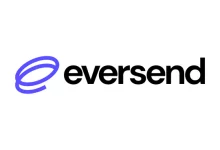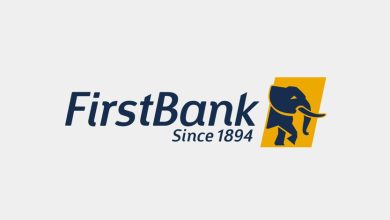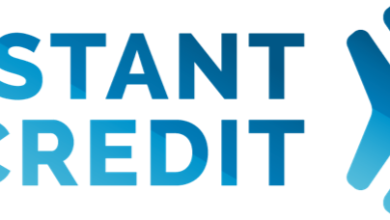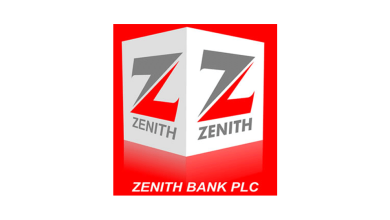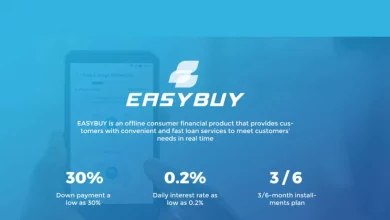Kuda vs Opay: Which is better?
Mobile online banking has gained significant popularity in Nigeria, with fierce competition among various fintech firms in the financial market. Two prominent players in this industry are Kuda and Opay, both of which have become stronger and more reliable in the banking sector.
In this article, we will compare Kuda and Opay to determine which one is a better option for business owners, vendors, and other users. These fintech organizations have established themselves as key players in Nigeria’s financial industry and have consistently offered top-notch services, even amidst competition from other similar platforms.
During Nigeria’s cashless policy implementation earlier this year, when many traditional banks faced technical difficulties, Kuda and Opay emerged as reliable solutions for both buyers and sellers. However, it is important to note that neither of these apps is perfect, and users must consider their specific needs and preferences when choosing between them.
Kuda Vs Opay
A comprehensive analysis of Palmpay and Opay will help us determine which one is the best and the ideal choice for users.
When it comes to user downloads, Kuda has amassed over 8 million downloads on both the Apple App Store and Google Play Store. It has received 234,000 reviews and maintains an average rating of 4.6.
On the other hand, Opay has surpassed Kuda with 11 million downloads. However, Opay has received a slightly lower number of reviews, totaling 246,000. Its average rating stands at 4.3, which is slightly similar to that of Kuda.
Software Usability
To ensure optimal performance and user experience, it is recommended to use a smartphone with a minimum of 2GB RAM when utilizing these apps. Devices with lower RAM may result in disruptions in the user experience.
Both Palmpay and OPay apps offer efficient user usability, with seamless registration and sign-in processes. The apps are designed to minimize lag and provide a smooth user experience. Additionally, they both have a fast transfer speed.
However, it’s important to note that if the internet connection is disabled, users may encounter errors when using the apps. Apart from this particular scenario, occasional network issues may occur during transactions on either app, potentially causing delays in deposits and bill payments.
Features
Opay excels in terms of features and is widely regarded as one of the top microfinance and mobile money applications in Nigeria. One standout feature of the Opay app is its savings function, which offers users a choice of five different savings models.
This feature is particularly beneficial for individuals who want to explore various methods of saving money. Additionally, Opay provides a range of other impressive features, such as an integrated loan app, cashback rewards on airtime purchases, secure fixed or flexible savings options, a POS system, and virtual and physical card capabilities.
While Opay offers a comprehensive set of features, Kuda is also highly regarded for its feature offerings. Kuda stands out by providing a reliable payment solution for businesses, instant loan financing, investments, savings, and virtual and physical card capabilities.
Lending
Opay includes a built-in financial lending service called “Okash,” which is available as a separate app on the Google Play Store. Through this service, users can borrow money and repay it within a specified timeframe. It is important to note that Okash operates independently from Opay and is managed by Blue Ridge Microfinance Bank.
If a user fails to repay their loan within the designated deadline, if there are sufficient funds in their Opay account, those funds will be automatically withdrawn to cover the loan payment. This process is implemented to ensure that loan repayments are made promptly and according to the agreed-upon terms.
A lot of users have been wondering, whether or not, if one can borrow money from the Kuda banking app, However, the answer is yes, but one must be actively transacting on the app to be eligible. Kuda has a flexible lending system, it offers eligible users overdrafts, for every money borrowed there is a daily interest of 0.3% till the payments are made, unlike other loan apps, Kuda will never harass, intimidate or embarrass you with defaults.
Fees
Opay provides its users with free transfers for all transactions, meaning that no fees are charged for transferring funds. On the other hand, Kuda gives only 25 free transfers per month to other banks. Once this is over, the user will now be charged ₦10 for every transfer lower than ₦10,000. While ₦50 for transfers higher than ₦10,000.
Savings
The Opay App offers five different ways for individuals to save money, namely: Flexible savings (owealth), Fixed savings, Spend and save, Target savings, and Safebox. These various methods allow users to save their funds and earn interest on their savings. The specific savings method selected will determine the amount of interest that can be earned.
While kuda banking also offers robust saving methods like that of Opay, which includes; SAVE AS YOU WANT, SAVE FREQUENTLY, SPEND+SAVE, and FIXED DEPOSIT.
Security
Kuda and Opay prioritize security and comply with the PCI DSS standards. They are committed to ensuring the utmost protection of the funds entrusted to them. As a user, it is crucial to treat your Mobile banking application pin as highly confidential and accessible only to you.
Both Opay and Palmpay have obtained insurance coverage from the Nigerian Deposit Insurance Commission (NDIC), further strengthening the security of your funds.
Similarities
Kuda and Opay share many similarities in terms of their functionality and services. Both platforms provide mobile applications that allow users to access various features and perform financial transactions conveniently. Users can deposit cash through a network of nationwide merchants associated with both platforms. Additionally, both Kuda and Opay enable users to send and receive money securely.
Both platforms leverage online banking technology to facilitate seamless transfers between accounts, ensuring efficient and reliable transactions. Furthermore, Opay and Palmpay offer their users access to their respective lending financial systems, providing opportunities for individuals to access credit and financial assistance.
While there are numerous similarities between Kuda and Opay, it’s worth noting that there may be subtle differences in terms of their user interfaces, additional features, or specific services offered. However, the core functionalities, such as mobile access, cash deposits, money transfers, and lending services, are common to both platforms, making them convenient and versatile options for users in managing their finances.
Advantages
Opay
- They Offer Cashback and Bonuses.
- Users can also request and access virtual Naira cards, as well as physical cards.
- Integration of various products.
- Instant access to loans.
- User can access an Opay-enabled POS device by requesting one.
- All daily transfers are free.
- When no internet connection, Opay-enabled USSD banking can be adopted.
- Users have access to secured savings.
- Recipients usually receive a transaction notification in less than a minute.
Kuda
- Secure and Seamless banking experience.
- No To zero lag or bugs on the app
- Flexible and simple user interface.
- User can enjoy free 25 transfers quarterly
- Swift transactions, Perfect for business owners and vendors.
Disadvantages
Kuda, Unlike Opay, Kuda doesn’t have bonuses and cashback features.
- There is a glitch in its referral system, which make it unstable at times.
- To be eligible for a loan, it takes strenuous effort, because one must be active on the app, and must be known to be transacting with large funds on the app.
- It doesn’t have a USSD banking Code.
Opay
- There might be downtimes in the transfer network.’
Kuda Vs Opay: Which is better?
Both apps are good and can be used for various financial options, Kuda can be of great help whenever you want to send money, buy airtime, pay bills, save money, invest, e.t.c, but if you want something more than what Kuda offers alongside extra features, then Opay should be your option, as it gives amazing features to its users such as bonuses, and cashback, fast loan access and access to its POS enabled device.
F.A.Q
How do Kuda and OPay differ in terms of the services they offer?
Kuda primarily focuses on providing banking services tailored to the needs of business owners, including easy account opening, budgeting tools, and real-time transaction notifications. OPay, on the other hand, offers a wide range of financial services, such as bill payments, airtime purchases, and peer-to-peer transfers, along with an extensive network of agents for cash transactions.
Which app has a more user-friendly interface?
Both Kuda and OPay strive to offer user-friendly interfaces. However, user preferences may vary. Some users may find Kuda’s interface more intuitive and easy to navigate, while others may prefer OPay’s interface. It’s recommended to try both apps and determine which one suits your personal preferences.
Which app has better customer support?
Customer support is crucial for any banking app. Kuda is known for its responsive customer support, offering multiple channels for users to seek assistance, including in-app chat, email, and phone support. OPay also provides customer support, but it may not be as extensive as Kudas. Consider your reliance on customer support when choosing between the two apps.
Which app has a wider reach in terms of agents and service availability?
OPay has established a vast network of agents across Nigeria, making it convenient for users to deposit and withdraw cash. This widespread presence gives OPay an advantage in terms of service availability. Kuda, on the other hand, is primarily focused on digital banking and may have a more limited network of agents. Consider your cash handling needs and the availability of agents in your area.
Are there any fees associated with using Kuda or OPay?
While Kuda allows for 25 free transfers each month, Opay allows for an unlimited number of free transfers for a lifetime.
Conclusion
Kuda and OPay are prominent players in Nigeria’s fintech industry, offering convenient mobile banking solutions. Kuda caters to business owners with tailored banking services, while OPay provides a wide range of financial offerings and an extensive agent network. Choosing between the two depends on individual needs and preferences. Factors like user interface, customer support, agent availability, and fees should be considered. Both platforms have contributed to Nigeria’s cashless policy and continue to evolve. Overall, Kuda and OPay exemplify the transformative power of fintech, providing accessible and inclusive banking services in Nigeria’s digital landscape.
